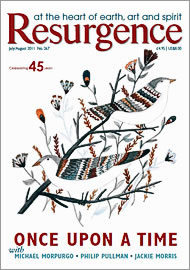People who teach the same subject for many years tend to go in one of two directions: either they come to identify totally with the material, feeling it as a mission or just a routine to simply pass on this ‘body of knowledge’, or else, conversely, they gradually begin to ask themselves, increasingly loudly, “What on earth am I doing teaching this stuff?”
Jean Hardy has taught political philosophy, and has taken the latter route, so A Wiser Politics is a book from someone questioning the very foundations of her subject. The first part summarises (very effectively) the most important thoughts of the most important thinkers in what is grandly called ‘the Western political tradition’. The second and third parts are devoted to what is wrong with it, and what it leaves out.
The Most Important Thinkers include two Johns and a Jean-Jacques, a Niccolo, a Thomas and a Karl. Notice anything about those names? They are all men. And if you read the surnames, it is starkly apparent that there are no African or Asian names here either. Of course, this is the ‘Western’ tradition, but it is this very same Western tradition that has, over many centuries, regarded itself as leading the world, and has had the economic, military and cultural power to do so.
This then is a book that speaks up for those whom this ‘tradition’ has left out or marginalised. Women, Indigenous people, the natural world, children, the voices of spirituality and the unconscious: in this book, all get invited to have their say in a conversation much wider and more welcoming than anything the Western tradition has had to offer.
And as obvious as it might seem now that all these voices ought to be included, it would have been difficult to imagine this book at an earlier historical period, because it is globalisation and the consequential rise of countries such as China that remind the West, every day now, that it is not the only part of the world that matters.
The radicalism of the 1960s and 1970s put ecology, feminism, radical approaches to psychology and Eastern religion on the agenda in ways that had never happened before. Stir all this together, with an in-depth knowledge of traditional political theory, and you have the makings of a book like this.
Covering this ground, this may very well have been a much larger book, but what the author has done is to select the most important information, say it clearly, and move quickly on. (There is a particular skill deployed here in picking out exactly the right quote from someone to sum up their thinking or to make a point.)
No page is wasted, which means that the reader should never feel bogged down, and if you do want to follow up with further reading around the topic, there are plenty of helpful suggestions.
The book demonstrates very clearly many interesting connections: for example between views of human nature and views about how societies are best organised; between a particular concept of ‘the individual’ and how that has played out historically in irresponsibility in business and finance; and how the separation of church and state has had the inevitable effect of divorcing spirituality from politics.
Overall, I think this is a very good book, but if I had a criticism it would be that in putting together a coherent and clear picture of the Western political tradition as a whole, some of its representatives (such as John Stuart Mill) are treated a bit unfairly in order to squeeze them into the picture. And in looking at what is wrong with the Western tradition, it seems to me philosophers get a bit too much of the blame that should rightly also be pinned on the forces of the world economy.
It is also true, though, that philosophers, along with economists, have at crucial points egged on some of the worst economic tendencies, so some of the blame really does belong squarely there.
If I were a teacher of political philosophy, this is a book I would definitely add to my reading list. It would remind me to challenge conventional thinking, particularly when I was teaching about the established big names.







